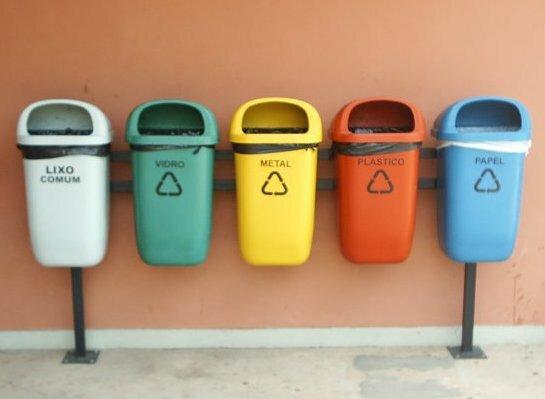Sustainability is a concept that involves the idea of sustainable development. In other words, it means the possibility of economic growth and provision of basic human needs without environmental wear and tear.
Sustainability is currently based on three principles, known as the "Tripod of Sustainability": social sustainability, environmental sustainability and economic sustainability.
The different aspects that make up these sets must act together so that society can fully achieve sustainable development. Check out some examples of actions that integrate the concept of environmental sustainability.
1. Use renewable and clean energy sources

Traditional energy sources, such as fossil fuels (oil, coal and natural gas), are extremely polluting and have a major negative impact on the environment.
Furthermore, they are also non-renewable, that is, their reversals in nature are limited. For this reason, exploring alternatives that are less polluting and renewable is one of the main actions of sustainability strategies.
Among the so-called "clean energies", some of the best known are: solar (obtained through the Sun); wind (obtained through the force of the winds and which is represented in the image above); hydroelectric (obtained through the force of the waters); geothermal (through the heat that exists inside the planet); among others.
know more about renewable energy and non-renewable energies.
2. Rationalize and control the exploration of mineral resources
Mineral energy sources are limited, meaning their existing reserves on Earth will one day come to an end. For the planet not to face a serious energy crisis, there needs to be a strategy that controls and rations extraction of these resources.
The ideal would be the total replacement of mineral raw materials by renewable energy sources. But, as the world moves towards this scenario, the zeal for the way in which these polluting sources are always extracted becomes essential.
The exploitation of these resources must be done with extreme care, as accidents can compromise the stability of an entire ecosystem. Offshore oil extraction platforms, for example, can cause an environmental disaster if the mineral leaks into the ocean.
Not only the exploration of minerals, but also of other natural raw materials, such as trees, for example, must be done responsibly.
Learn more about Sustainability.
3. trash recycling

Selective garbage collection is a simple example that each person can put into practice to help protect the environment.
To facilitate the selection of waste to be recycled, colors that correspond to discarded materials:
- Green = for glasses;
- Blue = for paper and cardboard;
- Red = plastics;
- Yellow = metals;
- Brown = for organic waste;
- Black = for woods;
- Gray = non-recycled materials;
- White = for medical waste;
- Orange = for hazardous waste;
- Purple = for radioactive waste.
The reuse of recycled waste is important to avoid pollution and waste of raw materials, such as trees for making paper, for example.
Recycling also helps to move the economy, as it can generate an increase in the number of jobs. In addition, it also helps companies to reduce production costs.
People need to be aware that some products can take centuries or millennia to break down. These same materials can be toxic, contaminating the entire ecosystem where they were discarded. Batteries and batteries for electronic devices are examples.
Learn more about Sustainable development and see some ways to help preserve the environment.
4. Use non-polluting means of transport

Automobiles powered by fossil fuels are largely responsible for polluting the atmosphere in large metropolises. Thus, adopting alternative means of transport, such as bicycle or use of public transport, is an example of collaboration for the sustainable growth of the community.
Encouraging the development of technologies that serve as an alternative to current fuels (gasoline, diesel, diesel, etc.) is another action aimed at environmental sustainability. Electric and solar-powered cars are examples of these "nature-friendly" technologies.
Many cities, especially in developed countries, provide bicycle rental services. This is an example of encouragement made by the government and companies for people to change their habits and adopt more ecological measures.
5. Rationalize energy and water consumption
Avoiding wasting energy and water is an individual action, but it makes all the difference in the purpose of sustainability.
For this, acts such as turning off electronic devices when not in use, as well as light bulbs and taking advantage of sunlight as much as possible are examples of how it is possible to rationalize the consumption of energy.
As examples of individual actions to save water consumption and collaborate with sustainability, the following stand out:
- use rainwater to water plants;
- always be aware of water leaks in faucets and pipes so that they can be fixed quickly;
- turn off faucets when not in use;
- turn off the shower while soaping.
See also what the Sustainable consumption.
6. Reforestation and enhancement of green areas
Reforesting areas that were devastated by deforestation is a basic attitude within the concept of environmental sustainability.
The creation of "green zones" in large urban centers it is an example of the concern with the need to guarantee the preservation of natural ecosystems.
These actions must be part of the fundamental public policies of the regions, thus spreading the concept of the so-called "sustainable cities".
Learn more about sustainable cities and environmental sustainability.
7. Promote and apply the concepts of Sustainability
In addition to putting into practice actions that contribute to the preservation of the ecosystem, it is also important to promote environmental education. This means publicizing the importance and benefits of nature conservation within the community.
Organize lectures, workshops and debates about how people can change small habits that are harmful to the environment is an example of environmental awareness.
Learn more about the meaning of environmental education and social responsability.

